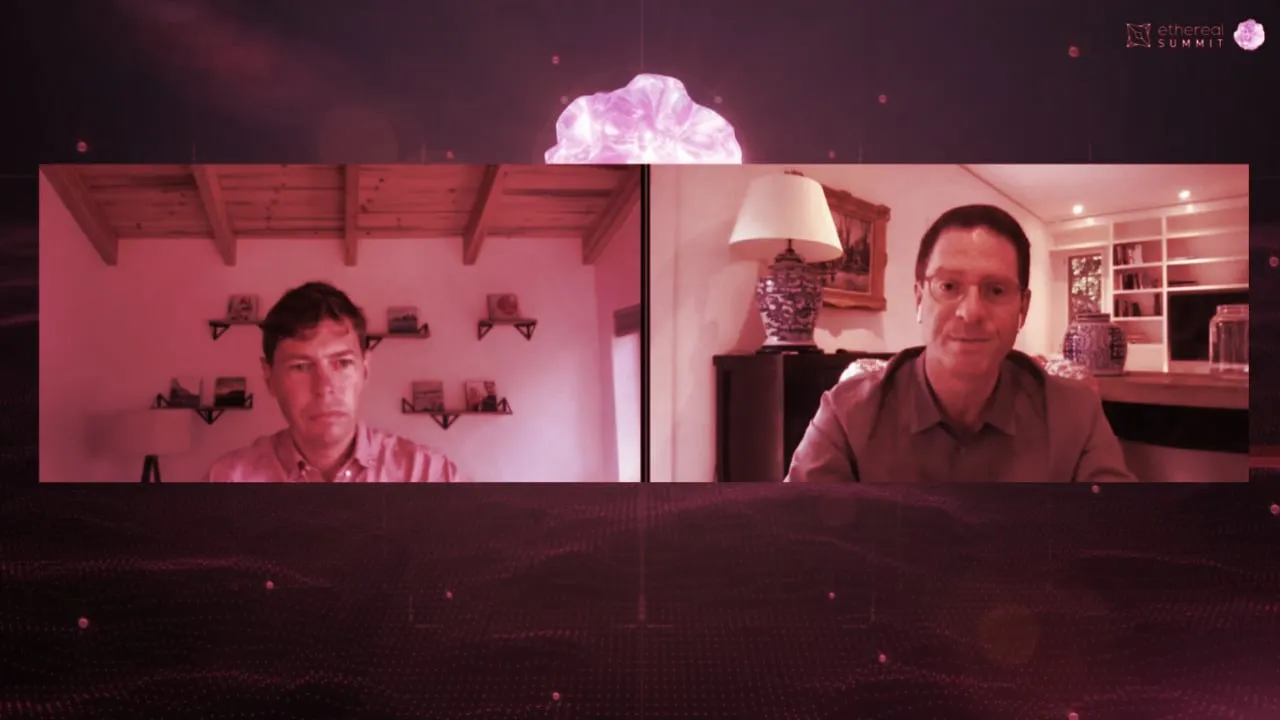Since its founding, Binance has been a corporate globe-trotter, moving its location from Malta to the Cayman Islands, and now, has no headquarters at all according to founder Changpeng Zhao.
This has given rise to persistent questions about the legitimacy of Binance—questions that may reflect hypocrisy and an anti-Asian bias in the crypto industry, says newly-appointed Binance US CEO Brian Brooks.
"To the Asian bias issue: I find it curious that somehow it's okay for a Silicon Valley-based tech company to go remote person, have no headquarters, and that's celebrated as visionary," said Brooks, speaking at Decrypt's Ethereal Summit. "But if a company that is based in Asia says 'Listen, we've been in a bunch of different places, and we have a distributed workforce', that is somehow evidence of a nefarious plot."
Brooks pointed out that Coinbase CEO Brian Armstrong would say much the same thing if asked. "He would say, 'We don't have a headquarters'. He said that very publicly."
Given the current geopolitical tensions between the U.S. and China, there's also the potential for Coinbase or Binance's rivals to engage in mischief, potentially by nudging American law-makers to view Binance as an Asian or Chinese entity. Decrypt's Executive Editor Jeff Roberts asked Brooks if this might arise.
“I mean, obviously, we don't need to do anything that stokes anti-Asian bias any more than it already is in this country," said Brooks, adding that, "I don't think that's Coinbase's style. The reason I've always respected and admired that company is that they compete on the merits [...] If they're going to win, it's going to be because of that, it's not going to be because of any trash-talking of a competitor."
Brooks emphasized that there's a clear division between Binance and its US counterpart.
"This whole trope about Binance US being a Chinese company or whatever, it just isn't true."
"This whole trope about Binance US being a Chinese company or whatever, it just isn't true," he said. "I understand the confusion because our founder obviously was also the founder of Binance.com, but the company's been very, very careful to respect the corporate separateness, and we'll be taking steps in the next six months to reinforce that."
Brooks added that Binance also has licenses to operate in over 40 U.S. and is managed out of San Francisco, and that it uses so-called geo-fencing to to prevent U.S. customers from accessing Binance's less-regulated global platform.
The Lyft to Coinbase’s Uber
Given Coinbase’s direct listing last month, another inevitable question that gets thrown Binance’s way is when the company will follow suit and go public. When asked if Binance could go public in the US within the next two years, Brooks took a measured approach. “The next two years sounds like an aggressive timetable," he said. "One of the things we need to focus on… is diversifying the cap table a little bit.”
“The great thing about Coinbase,” he continued, “ is that we’ve seen what works and what doesn’t. I’ve always said it’s better in some ways to be a fast follower. We may be Lyft to their Uber, and it’s not a bad place to be. Clearly, we see what the path looks like.”
Given the inevitable comparisons with Coinbase, it will be interesting to see just how Binance US decides to go public when the time comes. With Coinbase having abandoned initial plans for a token-based IPO, in favor of a direct listing, could Binance take the more experimental route? It comes down to regulation, said Brooks.
“I honestly don’t think we’re that far,” Brooks said. “There are real companies out there originating real financial assets on-chain today. One of the advantages that Binance US has is access to things like Binance Coin, and you can well imagine the issuance of a Binance US Coin or a fork of the Binance Coin that allowed us to do a token distribution as our way of putting ownership in the hands of the public.”
Binance's US expansion
Before any sort of public offering, Brooks made it clear that Binance US needs to grow. “I think that the company will probably double in headcount in the next six months, and we’ll probably reach five times the headcount over the next 18 months,” he stated. “We’re turning over two and a half billion dollar’s worth of trades a day with 100 people. We don’t have a US-based CISO yet—that’s one of my high-priority hires—and we really need to invest in compliance.”
"I guess we’ll make 75-100 hires in the next six months."
As the company scales out, Brooks added, it'll eventually launch new products in the US. "We’re going to be hiring people in compliance, finance, and a variety of other areas," he said. "I guess we’ll make 75-100 hires in the next six months."
And as for Miami, the potential new crypto hotspot? “It depends on how we come out of COVID,” Brooks said. “Everybody moved there because Miami represented freedom. The Bay Area is an amazing talent pool, but so many VCs, founders and even engineers have relocated to Florida. It has a tax environment that’s conducive to business, and now there’s a critical mass of talent moving there, it’s not 100% clear to me that the Bay Area will be what it was.”

